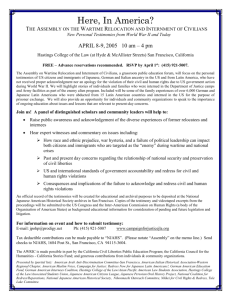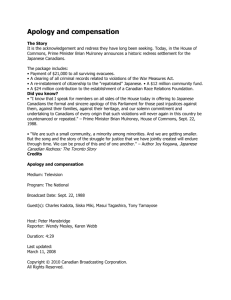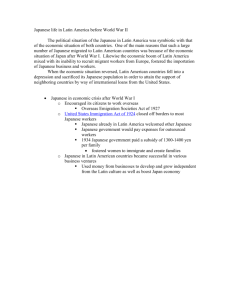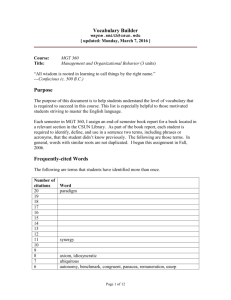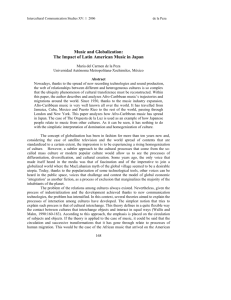Stripped of Their Rights, Injustices Unsettled: Japanese Latin
advertisement
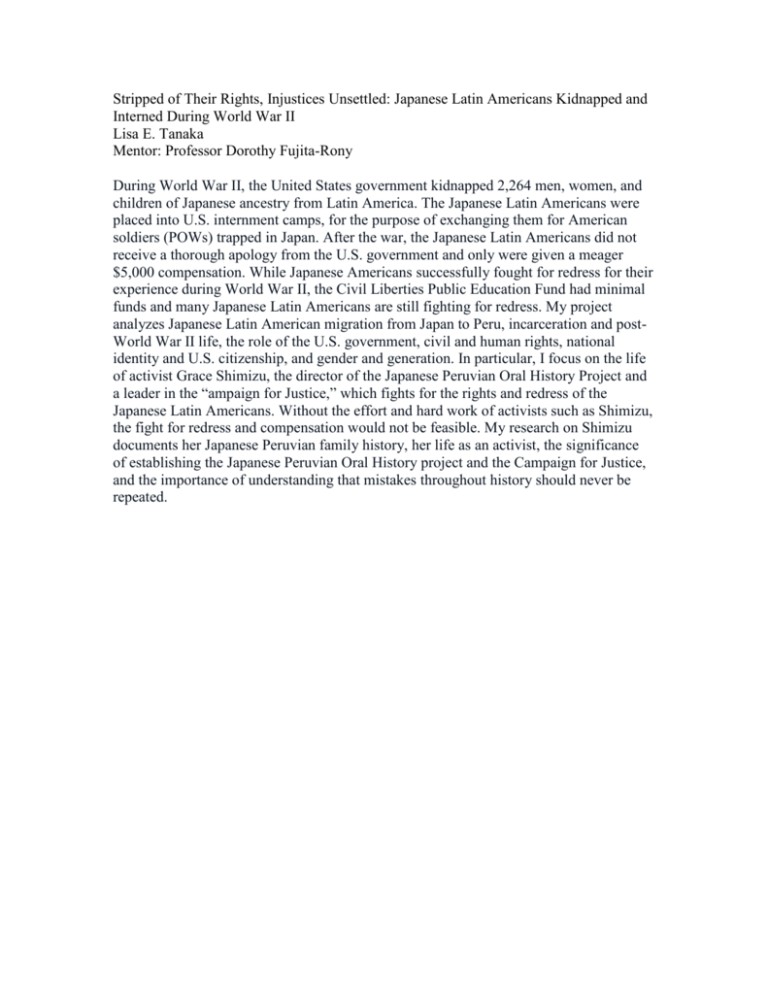
Stripped of Their Rights, Injustices Unsettled: Japanese Latin Americans Kidnapped and Interned During World War II Lisa E. Tanaka Mentor: Professor Dorothy Fujita-Rony During World War II, the United States government kidnapped 2,264 men, women, and children of Japanese ancestry from Latin America. The Japanese Latin Americans were placed into U.S. internment camps, for the purpose of exchanging them for American soldiers (POWs) trapped in Japan. After the war, the Japanese Latin Americans did not receive a thorough apology from the U.S. government and only were given a meager $5,000 compensation. While Japanese Americans successfully fought for redress for their experience during World War II, the Civil Liberties Public Education Fund had minimal funds and many Japanese Latin Americans are still fighting for redress. My project analyzes Japanese Latin American migration from Japan to Peru, incarceration and postWorld War II life, the role of the U.S. government, civil and human rights, national identity and U.S. citizenship, and gender and generation. In particular, I focus on the life of activist Grace Shimizu, the director of the Japanese Peruvian Oral History Project and a leader in the “ampaign for Justice,” which fights for the rights and redress of the Japanese Latin Americans. Without the effort and hard work of activists such as Shimizu, the fight for redress and compensation would not be feasible. My research on Shimizu documents her Japanese Peruvian family history, her life as an activist, the significance of establishing the Japanese Peruvian Oral History project and the Campaign for Justice, and the importance of understanding that mistakes throughout history should never be repeated.

